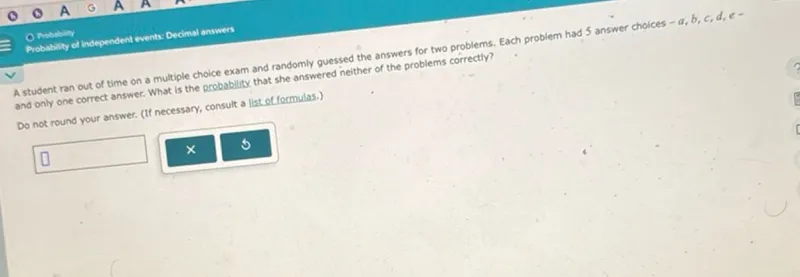Questions: Probability of independent events: Decimal answers A student ran out of time on a multiple choice exam and randomly guessed the answers for two problems. Each problem had 5 answer choices - a, b, c, d, c- and only one correct answer. What is the probability that she answered neither of the problems correctly?

Transcript text: Probability of independent events: Decimal answers
A student ran out of time on a multiple choice exam and randomly guessed the answers for two problems. Each problem had 5 answer choices - $a, b, c, d, c-$ and only one correct answer. What is the probability that she answered neither of the problems correctly?





